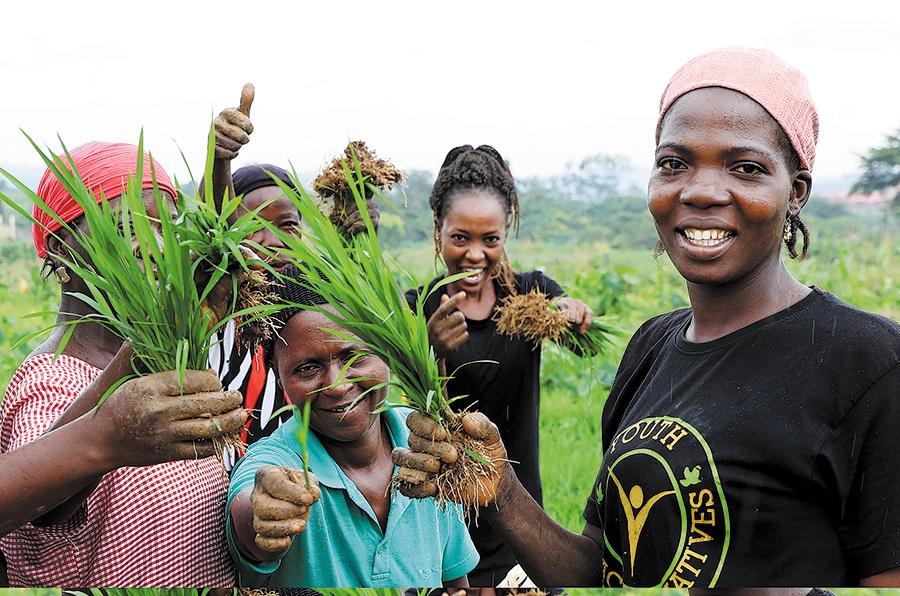'Tailored solutions' help fill Africa's grain bags
Chinese experts draw on experiences at home to boost continent's food crops


Realistic approach
During his stay in Tanzania over the past decade, Li spearheaded reforms with the aim of bettering impoverished communities through improved agricultural practices.
He introduced the concept of "parallel experience", which advocates tailored solutions that are aligned with Africa's specific challenges and opportunities.
"Before our arrival, numerous teams from various countries had already provided assistance in Tanzania," he noted.
"Often, the solutions were not in line with Africa's development context," he said.
Li said that previous projects often skipped much-needed basic farming practices, such as dense planting techniques and intercropping, and promoted more costly methods that included irrigation and mechanized farming.
These ambitious projects clashed with the realities on the ground, such as the majority of Tanzanian farmers being unable to afford tractors.
The high cost of fuel and maintenance, and the lack of paved roads also made mechanized farming nearly impossible.
Diverging from these impractical suggestions, Li drew inspiration from China's agricultural traditions such as optimal planting density, organic fertilization, and crop rotation.
His team started teaching dense planting techniques in 2011 to bolster production.
In 2021, with backing from the Bill & Melinda Gates Foundation, Li and his team launched the "Small Beans, Big Nutrition" project.
The initiative teaches local farmers to intercrop corn and soybean, and make secondary soybean products such as soy milk and animal feed.
Intercropping enhanced soil fertility. Soy milk offered an affordable protein supplement, diversifying food resources and improving the nutritional health of smallholder farmers. Animal feed processing extended the local agricultural industry chain, Li said.
Currently, more than 100 families are reaping the benefits of the project, the foundation said.
In two villages linked to the project, soy milk shops have opened. Another village has established a small feed processing plant.
Li's "parallel experience" theory is one example of China's efforts to enhance African food production through approaches tailored to specific conditions.
























